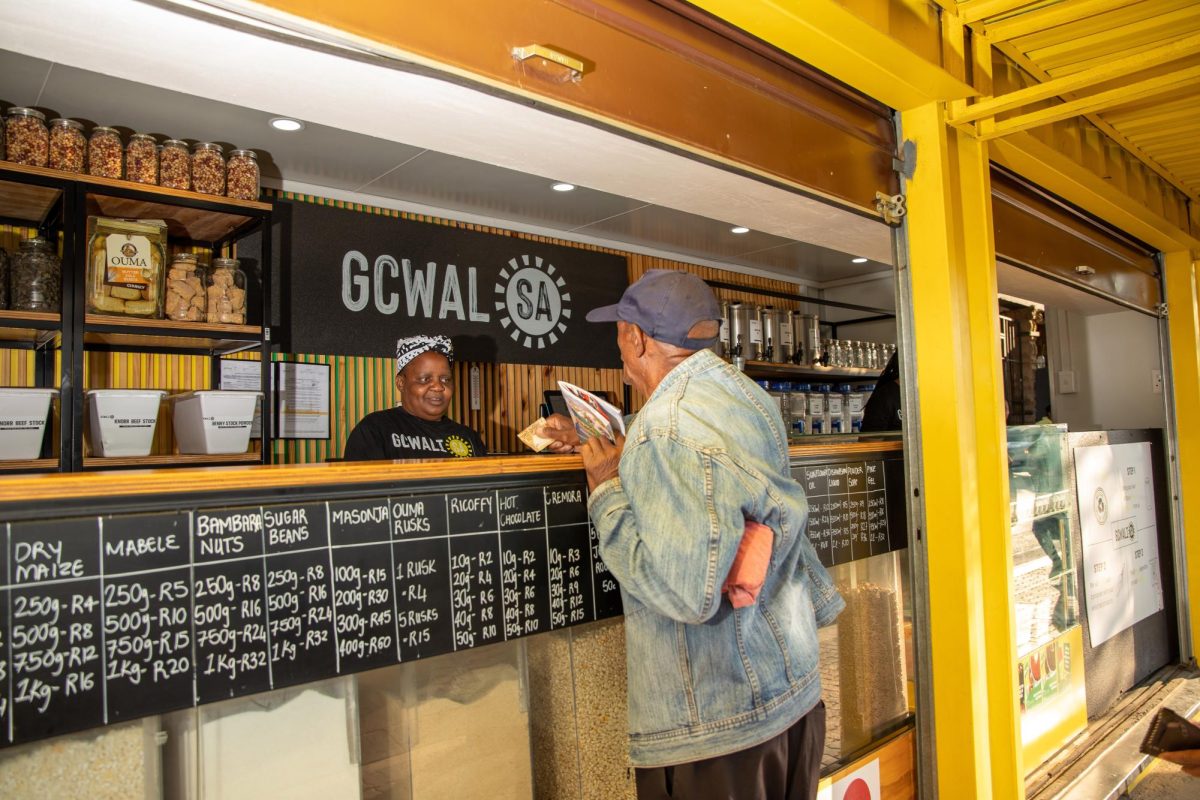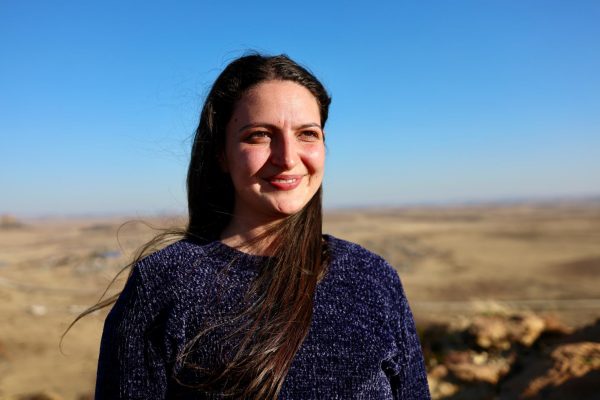Johannesburg, South Africa – Miles Kubheka, a food entrepreneur and systems-change enthusiast, has a history of finding inspiration and solutions hidden in plain sight.
“I think I knew I wanted to be an entrepreneur from early on. My mom always said to me, ‘Go out and change the world. Stand for something. Be somebody.’ And I remember thinking to myself, ‘Lay off me, woman. I’m only three years old,’” said Kubheka with a laugh.
Years later, Kubheka now empowers food entrepreneurs and chefs with opportunities to grow through a business he founded in 2020, Wakanda Food Accelerator. The accelerator helps innovative seed and startup businesses in the food, agriculture and beverage industries to grow and access new markets. It has supported over 400 businesses to date.
The accelerators’s name is a nod to the fictional African utopia in Marvel’s “The Black Panther,” a movie Kubheka loves.
“It portrays Africa in such a positive light,” Kubheka said. “I’d never seen that at a global scale, so I left [the movie] so inspired.”
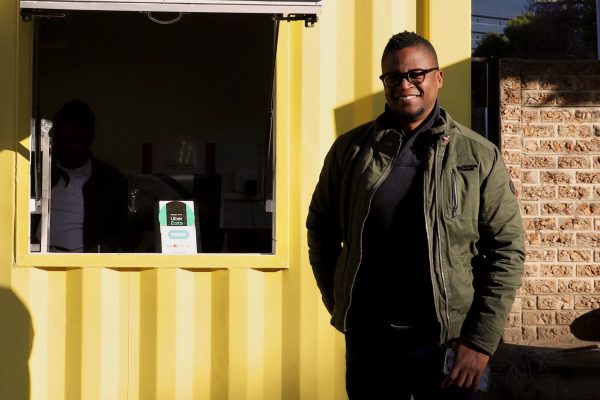
One of the entrepreneurs Wakanda Food Accelerator has helped is Chantelle de Bruyn, who created an innovative caffeine-free coffee made from vegetables with her agribusiness startup, Buttercup Farmhouse. De Bruyn came up with the idea after her grandfather was diagnosed with a liver and kidney infection and was told he could no longer drink his beloved coffee.
“Our participation in this accelerator has not only boosted our growth, but also we try to reinforce our commitment to delivering high quality and unique products to our customers,” de Bruyn said.
Kubheka’s favorite aspect of the business are Wakanda Food’s ghost kitchens, bright yellow shipping containers in the Sandton and Melville neighborhoods of Johannesburg that are outfitted with all of the necessary restaurant gear, from deep fryers to large grills to mixing bowls.
“All they need to do is bring their knives,” Kubheka said.
Wakanda Food Accelerator sets up entrepreneurs who use the kitchens with a point of sale system and seminars on business, including basic business skills like marketing, sales and operations, and advice on sourcing ingredients. While ghost kitchens typically are set up for delivery or pick-up orders only, Wakanda Food’s container kitchens also serve walk-up customers.
Couple-turned-business-partners Khumo Ya Baselsana Maromula and Thando Tshepuwane have been part of Wakanda Food Accelerator for almost a year, operating Base Eats from a ghost kitchen in Sandton. The two met in culinary school and first started selling their variation on braai (barbeque) cuisine and achar (pickled vegetables) out of their family home in Pretoria, 36 miles north of Johannesburg.
Maromula applied to a handful of programs for food entrepreneurs. When she got the call from Wakanda Food, she knew it would change the trajectory of their lives. Relocating to Johannesburg, the couple said their involvement with Wakanda Food helped them with the business side of their food startup.
“Learning how to do your own bookkeeping, that’s been really, really helpful.” Maromula said. “We had to catch up from 2016 all the way till 2023 last year in August.”
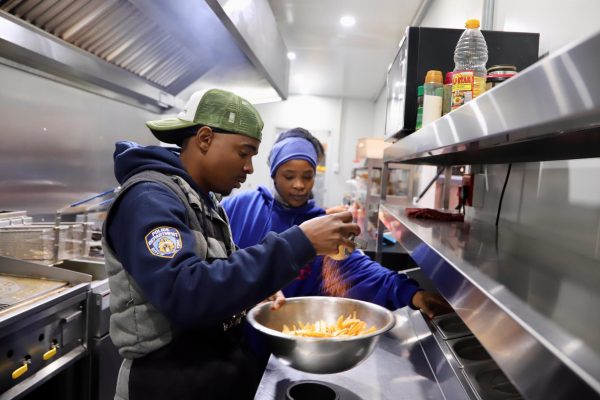
For Base Eats, the next stage is all about growing nationally.
“Initially, our goal is to actually have a fleet of food trucks based all around the country,” Tshepuwane said. “We want to be at that point where, if there’s an event in Joburg, there’s an event in Cape Town, there’s an event in Durban, I am there.”
Kubheka focuses on entrepreneurs from the city’s townships, including nearby Alexandra, or Alex as it’s locally known, and Soweto. Many Alex residents struggle with high levels of unemployment, crime, population density and inadequate infrastructure, including, in some parts, basic necessities like water and plumbing.
Townships like Alex were created by the apartheid government under the Group Areas Act of 1950 when Black, Indian and coloured – a non-derogatory term in South Africa that means mixed race – South Africans were forcibly removed from areas subsequently reserved for white South Africans. For Kubheka, the “apartheid design” of townships further creates obstacles for entrepreneurs.
“They were designed as dormitories,” Kubheka said. “There’s no high rises in townships. There’s no offices. People who do have work and jobs leave in the morning, at six o’clock, to go to the [Central Business District]. So if you’re running a township business, there’s no one. The people who are left there are not employed.”
Kubheka was intentional about his decision to set up the container restaurants in Sandton, one of the wealthiest areas in Africa and Johannesburg’s bustling finance center.
“I take the entrepreneurs that I think have potential and put them in the richest square mile in Africa and see if my hypothesis is right, that they will do better here than spending a lot of money trying to make them sustainable in the township,” Kubheka said.
Kubheka pointed to one township business that he helped, which he said went from making R16,000 ($889) a month in Soweto to R170,000 a month ($9,445) in Sandton.
“Would you rather have a sustainable business that sends money to the township or a township business that’s not making money in the township?” Kubheka asked.
Sweetness Simata, who lives in Alex, started working with Wakanda Food Accelerator doing a learnership (internship) right out of culinary school. Once his learnership ended, his entrepreneurial journey began.
“I told myself that I’m gonna create my own employment because everybody’s complaining about job opportunities, but I went to a culinary school, so I can’t be complaining if I have my own skills that I can use to start my own business,” Simata said.
In July 2022, Simata opened a container kitchen in Sandton called Sweet Chef’s Dak Wings, a variation on fried Korean wings with an African twist. Simata blends traditional South African recipes for chakalaka or achar to create a sauce that he pours over his signature glazed wings.
Sweet Chef’s Dak Wings will be a good test of Kubheka’s hypothesis about the viability of a business in Sandton versus Alex. Simata just launched a second location in Alex and has dreams of expanding to local events like music festivals and weddings. He said Wakanda Food taught him the business and leadership skills he needs to expand operations.
“I’ve learned how to manage it and how to manage other people,” Simata said.
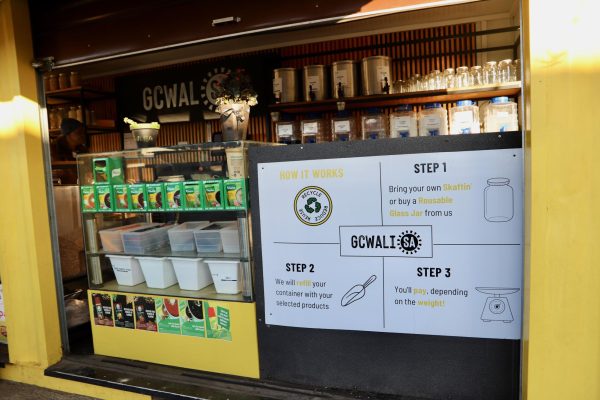
In Alex, Kubheka started a new project called Gcwalisa. A Zulu word that means “fill up,” Gcwalisa operates two refillery stores from shipping containers where patrons pay what they can to stock up on bulk supplies of items like laundry detergent, maize meal, sugar and dish soap.
Similar to the U.S, refillery stores often focus on zero-waste, with patrons bringing their own containers to fill. Gcwalisa shares this ecological approach, but it also has a social component. In townships like Alex, where limited cash flow is an everyday reality, the weigh-and-pay model enables residents to buy only what’s needed for the day, which can make a big difference in terms of basic needs and personal dignity. Solar panels on top of the refillery also help supply needed power to neighboring homes.
Kubheka said he hopes to have up to 10 of the refillery stations operational by the end of the year.
For Kubheka, the next great challenge is scale. Inspired by the grassroots work he does in Johannesburg, he now dreams about pan-African solutions.
“For me, it is to … see how I can make my continent a better one,” Kubheka said.
Just like the Black Panther protagonist in the movie he loves, Kubheka said he’s had a sense of his purpose from a young age.
Kubheka’s message to other entrepreneurs has a bit of a superhero edge as well: “You can design your life the way you want it to be,” he said.













































